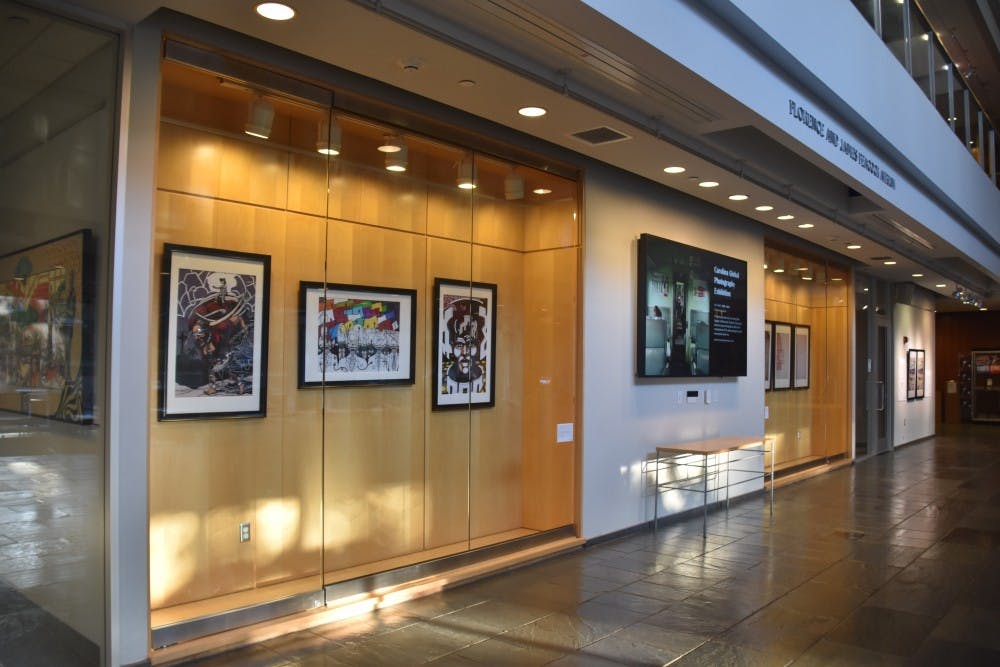Bright colors and bold lines cover a canvas while scribbles of pen cover a scrap piece of cardboard — both mediums are among the work of artist Ramón Nsé Esono Ebalé on exhibit in the “The Art of Resistance.”
The FedEx Global Education Center hosted an opening reception for the exhibit on Sept. 24 in the Florence and James Peacock Atrium. The exhibition will run until Dec. 13.
Emily Burrill, director of the African Studies Center at UNC, led a discussion with Ebalé and Tutu Alicante, director of human rights organization EG Justice.
“One of the core questions at the heart of all of this is, is creative expression and the ability to express political opinion a right? And where is it a right? Is it a human right? Is it a civil right? However these rights translate from a local context into bigger global contexts,” Burrill said.
“It’s such an incredible opportunity to be able to exhibit Ramón Esono Ebalé’s award-winning art on our campus, and to have him join us for a week of conversations about his work,” said Angela Stuesse, associate professor of anthropology and global studies at UNC, in an email.
Attendees heard about the medium of Ebalé’s work, the time he spent detained in Equatorial Guinea and the global #FreeNseRamon movement, which called for Ebalé’s release.
“I think that Ramon’s story is very powerful, to be able to meet someone who’s been detained and held in prison for his politically outspoken work," Burrill said. "To talk to him about his experience, I think will be transformative for many people."
Prior to the discussion, Ebalé and Alicante offered a guided tour of the exhibit. An additional tour took place following the discussion at 7:30 p.m.
“One of the most powerful pieces on display is the prison cell on the third floor. It vividly symbolizes what my country, Equatorial Guinea, has become for my fellow citizens who are denied basic human rights and freedom,” Alicante said in an emailed statement.




